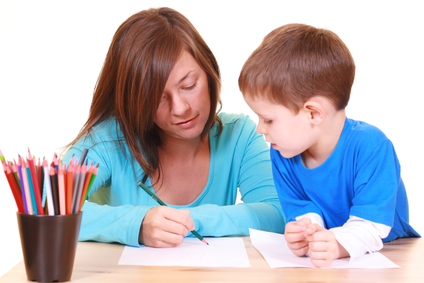Post-adoption depression
By Liz Lockhart
A study suggests that post-adoption depression may arise as a result of unrealistic expectations of  parenthood. As with all new mothers, feeling tired is a predictor of depression.
parenthood. As with all new mothers, feeling tired is a predictor of depression.
‘Feeling tired was by far the largest predictor of depression in mothers who adopted. We didn’t expect to see this, and we aren’t sure if the fatigue is a symptom of the depression or if it is the parenting experience that is the source of the fatigue,’ said Karen J. Foli who studied factors that could predict depression in adoptive mothers. She is an assistant professor of nursing and her findings can be found in the publication Advances in Nursing Science.
‘It also may be reflective of a lacking social support system that adoptive parents receive. However, a common thread in my research has been an assumption that if the mom didn’t carry the child for nine months or go through a physical labour, the parents don’t need help in the same manner as birth mothers doe,’ Foli added.
Foli found that there are several different predictors of depression in adoptive mothers which include expectations. Many adoptive parents have expectations which may not be realistic. These include:
- Expectations of themselves as mothers
- Expectations of the child
- Expectations of family and friends
- Perceived support from friends
- Self-esteem
- Marital satisfaction
- Parent and child bonding
Three hundred adoptive mothers were surveyed for this study. The average age of the children at the time of adoption was 4.6 years.
Foli, the author of ‘The Post-Adoption Blues: Overcoming the Unforeseen Challenges of Adoption’, has conducted previous work which found that unmet and unrealistic expectations which were associated with parenting, bonding with the child, and the support of friends and family were commonly related to depression.
It has been clearly established, through other research, that mental health, and particularly depression in birth parents, can relate to behavioural and emotional difficulties in children. If we know the trigger factors for post-adoption depression we can plan effective interventions to help avoid problems for adopted children, Foli said.
She added that as an example of this, nurses who work within a paediatric setting and the doctor of the mother could assess for fatigue. She stressed that it is important for health-care professionals, family members and others to realise that not all adoptions are equal.
‘Bonding with the children often comes up in post-adoption depression. If adoptive mothers cannot bond to their child as quickly as they expected, they commonly report feeling guilt and shame,’ Foli said. ‘These parents have the expectation to quickly attach to the child and they see themselves as super-parents. But what happens when the child they adopt is a teething toddler or unknown special needs surface? It’s a difficult stage for a parent who has known that child for two years, let alone someone who is establishing a new relationship with the child.’





